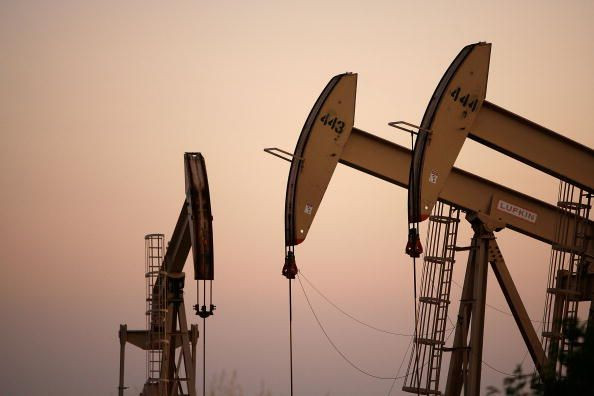Oil Prices Rattled By Brussels Terror Attacks Amid Flight To Gold, Other Safe-Haven Assets

Oil prices seesawed on Tuesday, rattled by investor nervousness after deadly blasts in Brussels prompted a flight towards so-called safe-haven assets such as gold.
A suicide bomber blew himself up at Brussels airport on Tuesday killing at least 11 people and a further blast tore through a rush-hour metro train in the Belgian capital shortly afterwards, claiming 10 lives, public broadcaster VRT said.
Oil had risen earlier in the session following a drop in U.S. inventory levels that helped ease some of the concern around oversupply that could dampen future price recoveries.
Brent crude futures were up 5 cents at $41.59 a barrel by 1127 GMT, having risen to a session high of $41.75. Brent has gained over 50 percent from January's 12-year lows.
U.S. May crude futures were down 6 cents at $41.46.
"The stocks (fall) in Cushing (U.S. oil delivery hub) helped ... but obviously now you have these headlines from Brussels and that can lead to some risk-off positioning. But the movements for now are not very significant," Petromatrix strategist Olivier Jakob said.
The dollar index, gold and German Bunds, all perceived to be less risky options at times of geopolitical or financial uncertainty, rallied in price. Equities came under pressure, led by steep falls in airline and other travel stocks, after the attacks.
U.S. crude stockpiles at the Cushing, Oklahoma hub fell 570,574 barrels to 69.05 million in the week to March 18, traders said on Monday, citing data from market intelligence firm Genscape.
Cushing inventories had previously risen towards 70 million barrels, causing market participants to fear they could hit capacity.
"Oil and a number of other markets have reached a bit of a pause phase," said Ric Spooner, chief market analyst at CMC Markets.
"For oil we have had a substantial rally. A lot of that has been preemptive in nature, preempting production cuts, and assisted by the weaker U.S. dollar," he said.
"We have arrived at the situation where the market is waiting for news to catch up with it a little," Spooner said.
Producers from OPEC and non-members meet on April 17 in Qatar to discuss an output freeze.
Iran has said it would consider joining in once it had recovered market share. A senior oil official was quoted as saying the country's crude exports have reached 2.2 million barrels per day (bpd) since sanctions were lifted in January, marking a rise of 900,000 bpd.
© Copyright Thomson Reuters 2024. All rights reserved.




















